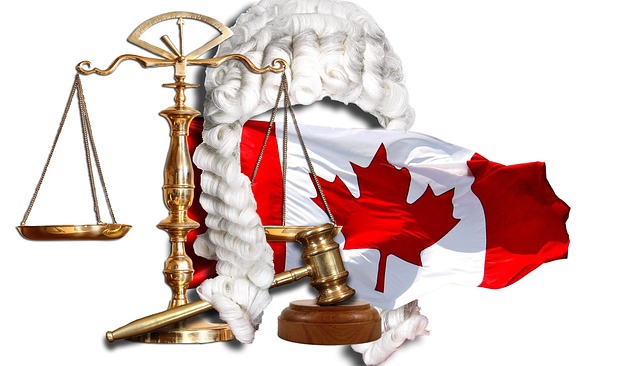Whistleblower Protection Lawsuits are crucial for individuals exposing illegal or unethical activities, offering protection from retaliation. Understanding the legal framework involves distinguishing between appeals, which challenge previous legal decisions, and post-conviction relief, correcting errors in initial proceedings. Strategic navigation through these processes, tailored to each case's unique circumstances, is key to achieving justice. Both philanthropic and political communities recognize strong whistleblower protections as essential for fostering a culture of ethical reporting while deterring retaliation.
Whistleblower Protection Lawsuits: Uncovering Justice in the Legal Labyrinth. This comprehensive guide delves into the intricate world of legal protections for whistleblowers, offering a strategic roadmap for those seeking justice. We explore the nuances of Understanding Whistleblower Protection Lawsuits and navigate the key distinctions between Appeal and Post-Conviction Relief. By understanding these legal avenues, whistleblowers can strategically pursue their cases, ensuring their voices are heard and rights protected.
- Understanding Whistleblower Protection Lawsuits: A Comprehensive Overview
- The Legal Landscape: Distinguishing Between Appeal and Post-Conviction Relief
- Strategic Considerations for Whistleblowers Seeking Justice
Understanding Whistleblower Protection Lawsuits: A Comprehensive Overview

Whistleblower Protection Lawsuits are a critical mechanism for individuals who expose illegal or unethical activities within organizations, government agencies, or corporations. These lawsuits aim to safeguard whistleblowers from potential retaliation, ensuring they can come forward without fear of adverse consequences. Understanding the legal framework behind these cases is essential, as it involves navigating complex procedures and distinguishing between various forms of relief.
One key distinction lies in the differences between appeal and post-conviction relief. Appeals typically target errors in a previous legal decision, allowing for reconsideration of a case. In contrast, post-conviction relief focuses on correcting judicial errors that may have occurred during initial proceedings. Achieving extraordinary results in whistleblower protection lawsuits often requires strategic navigation through these processes, leveraging the unique circumstances of each case. Across the country, both philanthropic and political communities recognize the significance of strong whistleblower protections, fostering a culture where ethical reporting is encouraged while retaliation is discouraged.
The Legal Landscape: Distinguishing Between Appeal and Post-Conviction Relief

In the legal realm of whistleblower protection lawsuits, understanding the nuances between an appeal and post-conviction relief is paramount for achieving extraordinary results. While both avenues seek to rectify legal wrongs, they operate in distinct spheres, catering to different stages of the investigative and enforcement process. An appeal focuses on challenging the initial judgment or verdict, scrutinizing procedural errors, interpretation of laws, or the weight of evidence presented during trial. This mechanism allows for a re-examination of the case at hand, aiming for a complete dismissal of all charges if the alleged mistakes are deemed significant enough.
In contrast, post-conviction relief is a broader term encompassing various procedures designed to address issues that arise after a conviction has been made. This includes claims of newly discovered evidence, ineffective assistance of counsel, or errors in sentencing. Unlike an appeal, which primarily targets the underlying criminal case, post-conviction relief can be employed as a tool for whistleblowers to challenge their subsequent treatment, such as collateral consequences or additional penalties imposed after the initial trial. Recognizing these differences is crucial in navigating the legal landscape and ensuring the most fitting strategy is pursued at every stage of the process.
Strategic Considerations for Whistleblowers Seeking Justice

Whistleblowers facing legal battles often navigate complex strategic considerations when seeking justice. A crucial step is understanding the distinctions between appeal and post-conviction relief processes. While appeals primarily focus on reviewing procedural errors and the admissibility of evidence, post-conviction relief delves into the substance of the case, examining claims that were not adequately addressed during the initial trial or appeal.
For his clients, this strategic decision is paramount as it determines whether to pursue a complete dismissal of all charges. By carefully evaluating the unique circumstances of each case and leveraging the appropriate legal avenues, whistleblowers can protect their rights, ensure the integrity of their respective businesses, and ultimately expose the truth behind unethical practices.
Whistleblower protection lawsuits play a pivotal role in upholding justice, offering a crucial avenue for individuals to expose illegal activities while safeguarding their legal rights. By understanding the nuances between appeal and post-conviction relief, whistleblowers can strategically navigate the complex legal landscape. This comprehensive overview highlights the importance of informed decision-making, ensuring that justice is not only served but also effectively protected in the face of opposition.






